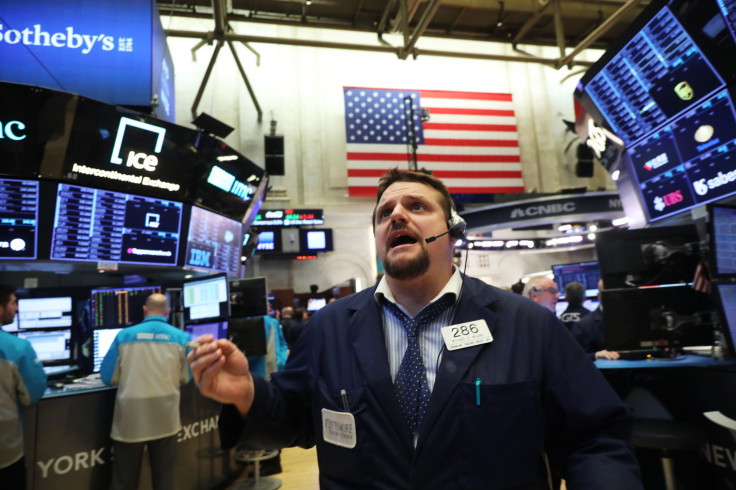Lower Open Likely For US Markets: Oil Down

Lower open expected for Wall Street Tuesday after the U.S. stock index futures looked lower on Tuesday morning. The market mood has been hit by steep losses in the previous session.
At 5:50 a.m. ET, Dow futures indicated a negative open of 80 points and above, while futures on the S&P and Nasdaq were down.
Escalating protests in Hong Kong and a crash in the Argentine peso drove are driving investors to “safe havens” such as bonds, gold, and the Japanese yen.
On Monday, the spread between 2-year and 10-year U.S Treasury yields narrowed to just 6 basis points, the lowest since 2007.
Market sentiment is already hurt by the prolonged uncertainty over the U.S. and China not resolving their trade war. The trade talks are expected to reopen in Washington in early September.
On the data front, the annualized and monthly Consumer Price Index (CPI) and core CPI data for July will be released at 8:30 a.m.
In earnings, JD.com, Advance Auto Parts, and Elanco Animal Health are some of the companies reporting their quarterly results before the bell.
CDK Global, Adaptive Biotech and Change Healthcare will disclose earnings after market close.
Oil prices slip
Oil prices fell on Tuesday, as sluggish demand forecasts overwhelmed hopes of major producers shoring up oil prices by limiting crude oil output.
International benchmark Brent crude futures fell 0.3 percent to $58.39 a barrel by 0310 GMT.
The U.S. West Texas Intermediate (WTI) futures lost 0.2 percent to $54.81 per barrel, from the last close.
“Although the outlook remains bleak, oil prices have remained anchored this week after a rapid response from Saudi Arabia which o s serious about stepping in to defend the oil price,” said Stephen Innes, managing partner at VM Markets in a note.
Saudi Arabia said last week that it will keep its crude oil exports below 7 million barrels per day in August and September to drain global oil inventories.
Saudi wanted oil prices to be stable ahead of its mega Saudi Aramco initial public offering (IPO) expected to be the world’s largest.
However, surging U.S. shale oil production is hitting efforts to limit the global supply overhang pulling prices down.
U.S. oil output is expected to hit a record 8.77 million BPD, according to the data by U.S. Energy Information Administration.
Asian and European markets down
Stocks in Asia slipped on Tuesday as tensions escalated in Hong Kong amidst reports that China’s military may step in and quell the protests.
In Europe, the pan-European Stoxx 600 slipped 0.7 percent by late morning.
The Hang Seng index fell 1.88 percent at the final hour of trading.
Hong Kong protests started as a resistance to the extradition bill to mainland China. But later it expanded into wider calls for democracy.
On Monday, protesters laid siege to the city’s airport leading to the suspension of air services.
Mainland China’s shares slipped on Tuesday and the Shanghai composite fell 0.63 percent. Japan’s Nikkei 225 dropped 1.11 percent while the Topix index fell 1.15 percent.
South Korea’s Kospi fell 0.85 percent and ASX 200 in Australia slid 0.33 percent.
Indian shares fell on Tuesday, as investors missed signs of any fiscal stimulus package ahead of key inflation data. Global stock market news also impacted such as the Sino-U.S. trade war, protests in Hong Kong and a crash in Argentina’s peso currency.
The 30-share benchmark BSE Sensex was down 1.67 percent while the 50-share NSE index took a larger hit and was down by 1.65 percent.
Gold at a six-year high
Meanwhile, gold prices zoomed to the highest in more than six years on Tuesday after investors shunned riskier assets and sought the comfort of gold and other safe assets.
Spot gold rose 0.3 percent to $1,515.32 per ounce as of 0334 GMT, after hitting its highest since April 2013 at $1,518.03. The U.S. gold futures rose 0.6 percent to $1,526.90 an ounce.
© Copyright IBTimes 2024. All rights reserved.





















